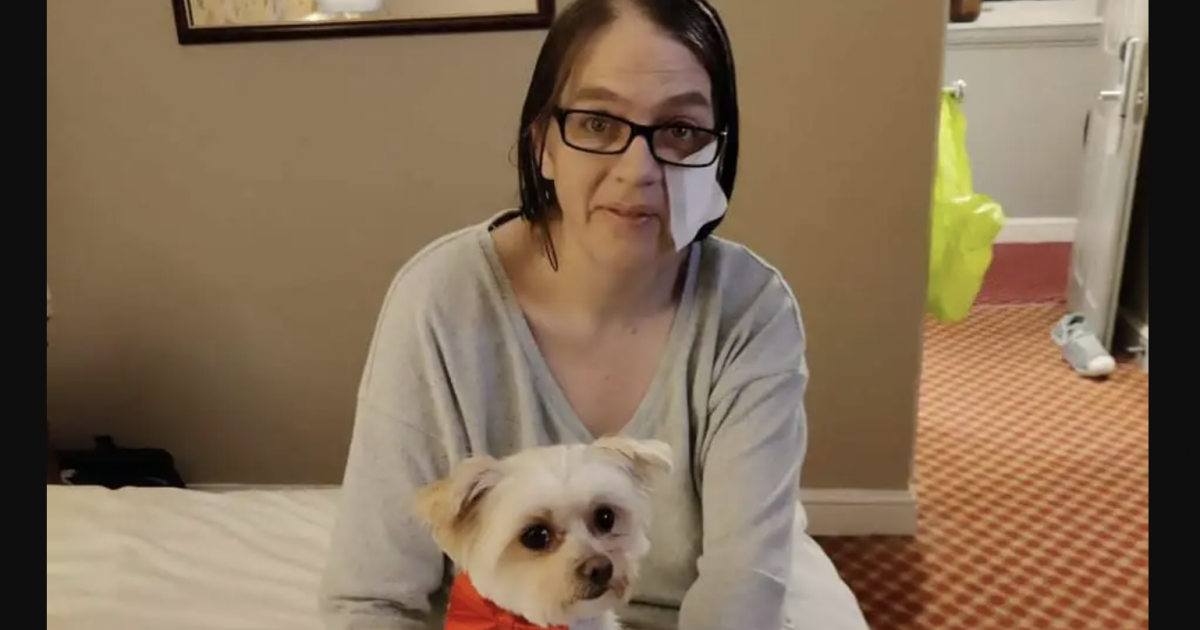Advocating for Your Health
- Natalie Blandford, 39, was diagnosed with stage 4 carcinoma of the sinus in September 2021. But that diagnosis came after months of oversight and symptom dismissals by doctors. Originally, she was simply treated for a toothache and given antibiotics.
- Nasal cavity and sinus cancers are rare, and symptoms don’t usually show up at earlier stages of the disease. Sometimes these cancers are discovered during treatment for a sinus infection.
- Advocating for your health is extremely important. You never know when speaking up about issues with your body can make a world of difference for health outcomes. One of our experts says that there should be a plan for what the doctor is going to do for you after your leave every appointment.
Blandford, 39, was diagnosed with a rare cancer stage 4 carcinoma of the sinus in September 2021. But that diagnosis came well after symptoms first started appearing in January 2021 when the former bus driver was having intense pain in her mouth in the form of a toothache. And at that point, doctors just assumed she had an infection and kept giving her antibiotics and allowing the tumor to grow.
Read More“All just for a toothache. If it had been caught earlier they could’ve tried to cut it out,” Gill said. “But if they tried now they said she would lose her eye, the top of her mouth.”
Gill, 63, now takes her daughter to her intense chemotherapy treatments every three weeks. And while she knows that chemo is just meant to give her as much time as possible, Blandford still has a good attitude and is enjoying life’s precious moments.
“When chemo stops, it will all grow back aggressively,” Gill said. “Nat was lucky enough to be able to marry the love of her life at the end of December, but she has one more wish – she wants to see West Ham United play.”
And thanks to the generosity of donors to a GoFundMe page set up by a friend, Blandford will be able to do exactly that from the safety of an isolated box. It’ll be the first time she’s ever gotten to see her favorite team play.
“We are totally overwhelmed with how supportive you have all been,” GoFundMe organizer Anne Hunt wrote in an update. “We have raised the target amount, so we can hopefully help Natalie achieve some more dreams, wishes and make lasting memories with her family.”
Understanding Nasal Cavity and Sinus Cancers
Nasal cavity and sinus cancers are rare. Memorial Sloan Kettering Cancer Center reports that these cancers only affect about 2,000 people in the United States each year, and tumors are more likely to begin in the nasal cavity than in the sinuses. We don’t know exactly what type of sinus cancer Blandford had, but tumors tend to form in the maxillary sinuses when they do develop in the sinuses.
Tobacco use is a risk factor for nasal cavity and sinus cancers. And these rare cancers are more common in people who have had significant exposure to wood dust, nickel and chemicals used in leather processing.
It’s uncommon for nasal cavity and sinus tumors to cause symptoms at their earliest stages. Unfortunately, most people tend to notice symptoms only once the tumor has grown large enough to block the nasal cavity or the affected sinus, or when it has spread to nearby tissue. Hence why your doctor may discover the tumor during treatment for a sinus infection.
Common signs of nasal cavity cancer and sinus cancer include:
- nasal congestion that doesn't go away
- chronic sinus infections that don't respond to antibiotics
- frequent headaches
- facial pain
- nosebleeds
- swelling around the eyes
- decreased sense of smell
More advanced disease is associated with:
- loose teeth
- numbness around the cheek and upper lip
- double vision
- swelling in the mouth, jaw or neck
Advocating for Your Health
Whether you are currently battling cancer or worried that you might have it, it's always important to advocate for your health. You never know when speaking up about a seemingly unimportant issue can lead to a very important diagnosis cancer or otherwise. And when you do seek out a doctor, it's important to make sure they're actively addressing your concerns and not brushing them off.
Be Pushy, Be Your Own Advocate… Don't Settle
"Every appointment you leave as a patient, there should be a plan for what the doc is going to do for you, and if that doesn't work, what the next plan is," Dr. Zuri Murell, director of the Cedars-Sinai Colorectal Cancer Center, told SurvivorNet in a previous interview. "And I think that that's totally fair. And me as a health professional that's what I do for all of my patients."
In a previous interview with SurvivorNet, April Knowles explained how she became a breast cancer advocate after her doctor dismissed the lump in her breast as a side effect of her menstrual period. Unfortunately, that dismissal was a mistake. Knowles was diagnosed with metastatic breast cancer at age 39. She said the experience taught her the importance of listening to her body and speaking up when something doesn't feel right.
I Wanted My Doctor To Like Me, Then He Missed My Breast Cancer
"I wanted my doctor to like me," she said. "I think women, especially young women, are really used to being dismissed by their doctors."
Figuring out whether or not you actually have cancer based on possible symptoms is critical because early detection may help with treatment and outcomes. Seeking multiple opinions is one way to ensure you're getting the care and attention you need.
One thing to remember is that not all doctors are in agreement. Recommendations for further testing or treatment options can vary, and sometimes it's essential to talk with multiple medical professionals.
Learn more about SurvivorNet's rigorous medical review process.

